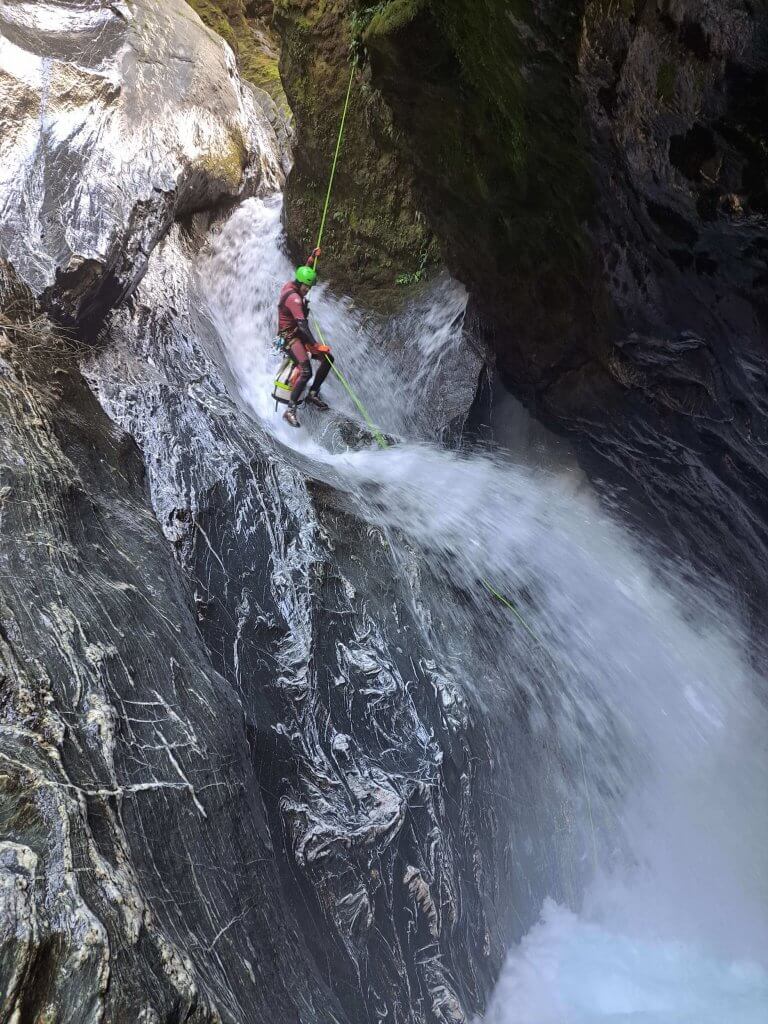In a world where attention spans are shorter than ever and distractions seem to lurk around every corner (cue the ding of another notification on your phone), finding focus and fully immersing ourselves in a task can feel like an uphill battle.
Yet, there’s a secret weapon that can help us overcome these hurdles and unlock some of our potential: the flow state.
But what exactly is this state of mind, and how can we harness its power?
What is Flow State?
The “flow state” is a psychological term coined by Mihaly Csikszentmihalyi. It describes a state of complete immersion and focused energy in an activity, often resulting in a loss of sense of time and self. It’s characterized by intense concentration, a feeling of joy and ease, and a heightened ability to perform tasks, creating an optimal experience that is intrinsically rewarding.
You have most likely engaged in this state in some capacity before. A captivating hobby or passion, the reading of a good book, creating art, learning something you love, or a deep engagement with your mind.
These are all linked to the flow state.
Flow state can also be seen in outdoor adventure sports like rock climbing or skiing as other examples, when one is ‘in the zone’ and nothing else but the environment and one’s activity is in one’s awareness.
They don’t always have to be extreme pursuits, however. The key is in the state of mind.
It is relevant to today that understanding our mental state and harnessing it effectively can be pivotal to maintaining overall well-being and achieving personal success. Many things are competing for our attention after all!
By exploring the flow state, its origins in ancient philosophy, modern interpretation, ways to cultivate it, and its profound effects on mental health and overall well-being; can help us use the flow state in our own lives.

Aristotle’s Ideas on Flow
Tracing back to the roots of the flow state concept, we find ourselves amidst ancient philosophy. Aristotle, the Greek philosopher, presented several concepts that echo in the modern understanding of flow. ‘Eudaimonia,’ ‘arete,’ and ‘ataraxia’ are particularly noteworthy.
Eudaimonia, often translated as ‘flourishing’ or ‘the good life,’ is about achieving the highest human good. It’s not merely about fleeting happiness but signifies fulfilling our potential, essentially living in accordance with our true nature. It’s about the journey and process of living well.
Arete, or ‘virtue’ or ‘excellence,’ is about reaching our highest potential in areas that make us distinctly human. This involves engaging in activities that require rational thought, moral action, and continuous self-improvement. It implies that the journey to excellence is not passive, but requires consistent effort and engagement.
Ataraxia, which translates to ‘unperturbed’ or ‘tranquil,’ is a state of serene calmness, a peacefulness that stems from emotional equilibrium and an absence of distress. This is achieved when we rid ourselves of unnecessary worries and learn to live in the moment.
These Aristotelian ideas harmonize with the concept of flow. They suggest that when we’re completely engaged in an activity, effectively utilizing our skills, we’re more likely to experience a peace of mind, a sense of personal excellence, and overall life satisfaction.
Mihaly Csikszentmihalyi and the Concept of Flow
Hungarian psychologist Mihaly Csikszentmihalyi played a key role in taking these philosophical concepts to a psychological plane. He coined the term ‘flow’ to describe a unique mental state where one is fully absorbed in the current activity, so much so that the external world and the passage of time become oblivious.
His extensive research found that people experience the highest levels of satisfaction and happiness when they’re in this state of flow.
He delved deep into the human psyche, interviewing people from all walks of life, including athletes, musicians, and artists, to understand the universal nature of flow.

How is Flow State Achieved?
Achieving a flow state is like fine-tuning a musical instrument, seeking the right balance between challenge and skill. The task at hand should be sufficiently stimulating to engage your complete attention but not overly challenging that it induces anxiety. This is somewhat related to aristotles ‘golden mean’ or ‘middle path‘ in that the best outcome usually lies between two extremes.
Here are some concrete steps you can take to foster a flow state:
1. Set Clear Goals: Define what you want to achieve from an activity. It gives your task a direction and your mind a focal point. For example, if you’re into painting, your goal could be to complete a portrait. If you’re into mountain biking, you could aim to complete a particular trail within a certain time.
2. Seek Immediate Feedback: Real-time feedback is critical for maintaining the flow state, as it allows you to adjust your actions accordingly. For a painter, feedback could be observing the color blends or shapes, making immediate adjustments as needed. For an outdoor adventurer like a rock climber, feedback could be the body’s immediate response to each handhold or foothold, making necessary shifts in balance or grip in real-time. The key is the present moment awareness- something that can be practiced and honed.
3. Eliminate Distractions: To achieve deep concentration, create an environment free of interruptions. If you’re engaging in a hobby like reading or gardening, find a quiet, comfortable space where you won’t be disturbed. If you’re into outdoor activities like hiking or surfing, choose times and places where crowds are minimal. Oftentimes, we choose to engage with these activities to get some alone time anyway!
4. Practice Mindfulness: Regularly engaging in mindfulness practices like meditation or yoga can enhance your ability to concentrate and stay in the present. This can be beneficial for both indoor and outdoor activities as it encourages a state of active, open attention on the present, allowing you to fully engage in what you’re doing.
5. Maintain a Balance: Adjust the difficulty of the task to align with your skill level. If the challenge is too easy, you may lose interest; if it’s too difficult, it can lead to anxiety. For example, if you’re learning to play a musical instrument, don’t start with a complex composition that can overwhelm you. Instead, start with simpler tunes that match your skill level and gradually increase the difficulty.
6. Invest Time and Energy: Achieving flow is not an instant process; it demands dedication and effort. Whether you’re honing a craft or training for a marathon, be patient and persistently invest time in practice. The highest good is that which takes effort and time.
7. Do Something You Like: It’s often more about setting yourself up to allow it to happen, rather than trying to push for it. This is why we choose activities that engage us, as these will most likely result in the state of flow. It’s less likely to occur with something you don’t want to do or dislike intensely.
Drawing on Csikszentmihalyi’s and others’ research, these steps can help cultivate the conditions necessary for achieving a flow state. It can take 10-15 minutes (or more) to achieve flow state, and from then can last hours sometimes.
By integrating these steps into your routine for an activity you enjoy, you can not only increase your chances of experiencing flow but also enhance your skills, creativity, and overall enjoyment of the activities you love.

Flow State, Mental Health, and Overall Well-being
The impact of flow on mental health and overall well-being is considerable. When you’re in flow, the state of heightened focus and immersion can significantly reduce feelings of stress and anxiety while increasing feelings of control and satisfaction.
Problems will melt away for a time. And while they may still be there when we get back, having a break can significantly help us see our issues and challenges with new perspectives. The renewed confidence in ourselves and our ability will often help us tackle them.
And regularly engaging in flow-inducing activities can enhance mood, lower stress levels, and improve self-esteem.
These are key components of mental health. Moreover, the sense of accomplishment that ensues from flow experiences fosters personal development and self-improvement, thereby enhancing overall well-being.
Recent studies have demonstrated that experiencing flow can lead to a sense of fulfillment and life satisfaction—echoing Aristotle’s idea of eudaimonia in our modern lives.
An important note should be made at this point. Using a state of flow will not make our problems go away. It can be tempting to constantly seek and engage flow as a mask to our troubles and issues, and so the virtue becomes a vice as we rely on it as a crutch. This is why it should be used with the idea of the middle path in mind. Use it wisely and it becomes a tool for good, and used incorrectly can deepen our troubles.

Find your Flow
The concept of flow—deeply rooted in philosophy and validated by modern psychology—provides a powerful avenue for enhancing mental health and overall well-being.
While our problems in life will not go away by entering into a state of flow, the increases in mental and emotional wellbeing, and overall satisfaction, can help us deal with them better.
By understanding and harnessing the power of flow, we can boost our productivity, enrich our mental health, heighten our happiness, and lead more fulfilling, satisfying lives. Embracing Aristotle’s wisdom and Csikszentmihalyi’s research, we can strive to find and maintain our flow state today.
Want help finding your flow? Check out the links below and set up your consultation for some 1:1 mental health coaching today.





